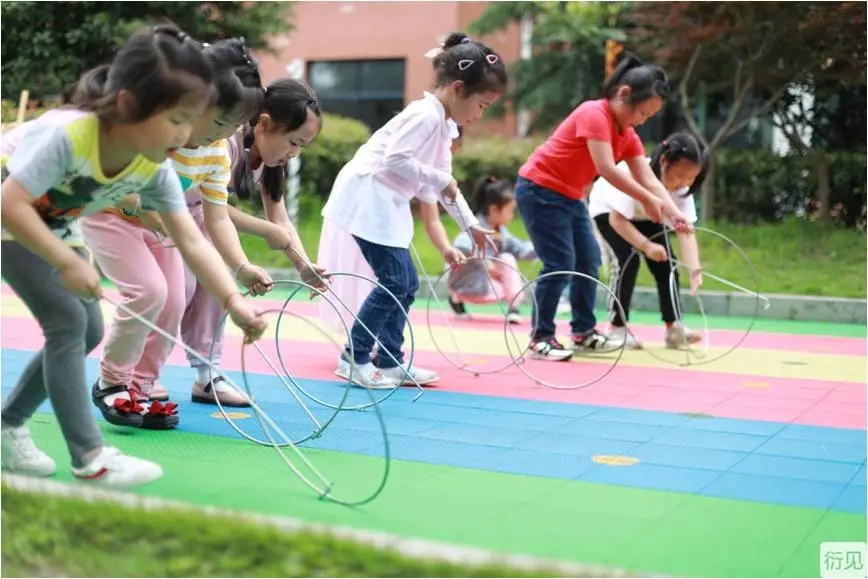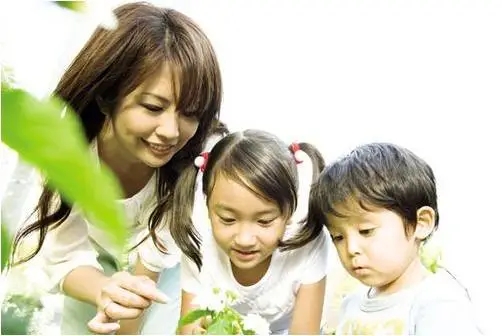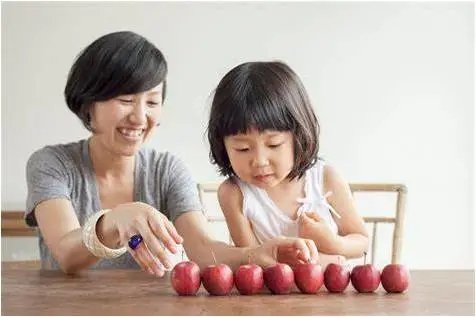这是 达医晓护 的第 3330 篇文章
上一篇我们介绍四到五岁孩子各阶段发育的科普。本次的主题是接着一起来看看学龄前儿童在五到六岁的正常发育轨迹,如何促进处于这个阶段的儿童发育,以及在什么情况下需要引起重视去看发育专科医生。
 游戏和学习
游戏和学习
即使孩子们长大并开始准备上学了,玩游戏对他们来说还是很重要。这仍然是孩子们学习和培养社会交往能力、情感和思维技能的方式。
孩子会玩更复杂的扮演类游戏了,充满了幻想和戏剧性。你可能会发现孩子可以和其他人一起玩来实现一个共同的目标——例如,一起建造一座大沙子城堡。如果一起玩的小伙伴不想玩某个特定的游戏,孩子可能也会想办法自己解决。这个年龄孩子的社交能力在增强,更喜欢和朋友一起玩,而不是自己一个人玩。他们会与人一起分享,尽管可能会发现很难做到分享自己喜欢的玩具和物品。
对于六岁的孩子来说,需要遵守游戏规则才能玩的游戏有时具有挑战性,孩子有时甚至还可能会指责别人作弊。
情感发展
在这个年龄,孩子们能够表达自己的感受,尽管有些比较微妙的情绪,诸如挫折或嫉妒等,可能需要在我们的帮助下并花费一些时间才能确认并谈论。他们通常能更好地控制自己的情绪,和以前相比,愤怒和悲伤的情绪爆发在减少。
与以前相比,你会发现孩子有更多的耐心,甚至可能愿意和你讲道理。这意味着从今以后,你和孩子的分歧可能会减少。虽然六岁的孩子开始喜欢独立,但他们仍然需要你的爱和充分的关注。与你和家人的交流沟通是孩子生活中最重要的事情。孩子会为自己取得的成就感到自豪,并希望得到你的认可——而且不喜欢被批评或管教。
随着孩子对周围世界的了解越来越多,可能会导致一些担心的情绪。例如,一些孩子可能会担忧害怕超自然的事物(如鬼魂)、批评、考试、失败或身体上的伤害或威胁。
思维
在这个年龄阶段的学龄前儿童集中注意力的时间比以前长些。孩子能理解时间(今天、明天、昨天)等简单概念,知道季节,能认识一些单词,并尝试读出来。有些孩子可能会自己阅读书本。孩子开始善于从别人角度出发来思考,这有助于他结交和认识朋友。
语言和交流
在这个年龄,孩子们很唠叨话很多,有时甚至与在房间里没有人的时候也会说话。你会发现孩子会使用完整复杂的句子,并进行成人式的对话,但他们可能仍然难以描述复杂的想法或事情。你的孩子会听懂笑话和谜语——关于便便和小便的笑话对他们来说特别有趣。孩子也会喜欢在学校做“展示和讲述”的机会。
孩子理解的单词比他们能说出来的多,他们每天学习多达5-10个新单词。这个年龄段的词汇量增长如此之快,常常会出现孩子的大脑思考的速度往往超过了孩子说话的速度的情况。
运动
五岁的孩子的协调性更好了,喜欢炫耀新的运动技能——你经常会听到他在叫“快来看我!” 你的孩子可以学习如何骑自行车、跳绳、金鸡独立、不需要牵着你的手下楼、跳跃和接球。许多六岁的孩子还会开始对像足球这样的团队运动感兴趣。
你家六岁的孩子是不是总是没法安静下来?看电视、吃饭甚至睡觉时扭动对他们来说都是很正常的。
孩子的精细运动技能正在提高,这使得他们在系鞋带、使用筷子,拉链和纽扣、梳头发等方面变得更加独立。
在五到六岁这个年龄阶段,孩子可能还会:
·会画不同的简单图形
·会写字母和自己的名字
·会说自己的姓名,地址,年龄和生日
·绘图趋于现实生活,比如,画的人有眼睛、嘴和鼻子,身体,胳膊和腿
·会自己阅读绘本
·了解规则的重要性,以及规则背后的简单的原因。
 如何促进五岁到六岁儿童发育?
如何促进五岁到六岁儿童发育?
1.鼓励多运动:鼓励孩子多做一些不同的运动和娱乐活动项目。通过这些活动能让孩子教会孩子社交的技能,诸如大家轮流来、合作、谈判、公平比赛并成为一个有风度的人。
2.让孩子参与做一些简单的家务:吃饭时摆桌子或帮助大人收拾干净的衣服可以培养孩子的活动协调能力和思维能力,同时也可以培养孩子的合作意识和责任感。这些技能对今后在学校的学习很重要。
3.给孩子留出自由玩耍的时间:即使你的孩子已经准备上学了,玩耍在这个年龄阶段仍然非常重要。可以考虑让你的孩子自己选择和决定在这段自由的游戏时间玩些什么。
4.每天和孩子玩一玩,哪怕只是10分钟的时间:和孩子一起玩耍让你有机会进入孩子的世界,了解他们的想法和感受。同时这也能让你的孩子看到你关心他们,想和他们在一起。
5.和孩子谈论感受:你可以帮助你的孩子找出他们为什么会有情绪和感受,并帮助他们用语言表达出来这些感觉。这将帮助孩子建立友谊并表现出同理心。同时可以和与孩子开始讨论平等对待男孩和女孩,尊重女孩和妇女。
6.练习课堂行为:例如,你可以给孩子一些需要集中注意力或者是遵循简单的规则或指示的小任务。就孩子最喜欢的动物或运动进行对话,鼓励孩子倾听、回答和提问。这些都是幼小衔接的一部分,有助于孩子为上学做好准备。
 在什么情况下需要引起重视去看医生
在什么情况下需要引起重视去看医生
如果观察到五到六岁的孩子有任何一项下述情况的,需要带孩子去就医进一步评估。
很难理解或说整个句子
很难遵循简单的指示,如“穿上衣服后请把睡衣放在床上”。
有许多不恰当或具有挑战性的行为——例如,每当他们不能随心所欲时就会发脾气
对字母,文字或试图写自己的名字不感兴趣
与你分开时,会表现出非常孤僻沉默寡言、焦虑、或非常沮丧
与他人互动和交往不好-例如,表现出攻击性,或对与其他儿童或成年人互动不感兴趣
白天仍然会尿湿或大便在裤子上,不过在6-7岁之前,夜间尿床还是常见的,特别是男孩
夜间难以入睡或睡不安稳
Child development at 5-6 years: what’s happening
Playing and learning
Even as children get older and start school, play is important. It’s still how children learn and build social, emotional and thinking skills.
Your child’s pretend play is more complex now, filled with lots of fantasy and drama. You might also notice that your child can play with others to achieve a common goal – for example, working together to build one big sandcastle. Your child might also be able to work things out if another child doesn’t want to play a particular game. Your child is becoming more social and prefers to play with friends rather than on their own. Your child can share, although they might find it hard to share favourite toys and other things.
Games with rules sometimes challenge your six-year-old, and your child might even accuse others of cheating sometimes.
Feelings
At this age, children can express feelings, although they might need help and time to identify and talk about tricky emotions like frustration or jealousy. They often have much better control over feelings too and might have fewer unexpected outbursts of anger and sadness.
You might see more patience, and your child might even be open to reasoning with you. This means there could be fewer disagreements in the future.Although your six-year-old loves to be independent, they still need your love and attention. Connecting with you and family is the most important thing in your child’s life. Your child is proud of their own achievements, wants your approval – and probably doesn’t take well to criticism or discipline.
Your child’s growing understanding of the world around might lead to some fears. For example, some children might be afraid of supernatural things (like ghosts), criticism, tests, failure, or physical harm or threat.
Thinking
At this age, children can pay attention for longer now.Your child understands simple concepts like time (today, tomorrow, yesterday), knows the seasons, recognises some words by sight and tries to sound out words. Your child might even read on their own.Your child is better at seeing other people’s points of view, which helps your child to make friends and meet new people.
Talking and communicating
At this age children talk a lot, sometimes even when nobody is in the room.
You’ll hear your child using full and complex sentences and having adult-like conversations, although they might still find it hard to describe complex ideas or events. Your child understands jokes and riddles – jokes about poos and wees are particularly funny. Your child also enjoys the opportunity to do ‘show and tell’ at school.
Your child understands more words than they can say, and they’re learning as many as 5-10 new words each day. Vocabulary growth is so rapid at this age that your child’s brain often thinks faster than your child can speak.
Moving
Five-year-olds are more coordinated and love to show off new physical skills – you’ll often hear shouts of ‘Look at me!’ Your child can learn how to ride a bike, jump rope, balance on one foot for a short period of time, walk downstairs without needing to hold your hand, skip and catch a large ball. Many six-year-olds will also be interested in playing team sports like soccer.
Does it seem like your six-year-old can’t ever keep still? Wriggling while watching TV, at the dinner table or even while sleeping is pretty normal.
Your child’s fine motor skills are improving, which leads to more independence with things like tying shoelaces, using chopsticks, zips and buttons, and brushing hair.
At this age, your child might also:
· copy simple shapes with a pencil
· copy letters and write their own name
· say their full name, address, age and birthday
· draw more realistic pictures – for example, a person with a head with eyes, mouth and nose, and a body with arms and legs
· read simple picture books
· understand the importance of rules, and the simple reasons behind rules.
How to help your preschooler development at this age
Encourage moving: play different sports and do recreational activities together or with others. These teach social skills like taking turns, cooperating, negotiating, playing fairly and being a good sport.
Include your child in simple household chores: setting the table or helping you to put clean clothes away develops moving and thinking skills, while also teaching cooperation and responsibility. These skills are important for school.
Set aside some time for free play: even if your child has started school and other structured activities, play is still very important at this age. Let your child choose how to spend this free playtime.
Play with your child each day, even if it’s just for 10 minutes. Playing together gives you the chance to enter your child’s world and find out about their thoughts and feelings. It also shows your child that you care about them and want to spend time together.
Talk about feelings: you can help your child work out why they’re feeling something and help them put words to these feelings. This will help your child form friendships and show empathy. Talk with your child about treating boys and girls equally and respecting girls and women.
Practise classroom behaviour: for example, you could give your child small tasks that need attention or involve following simple rules or instructions. Have conversations about your child’s favourite animal or sport and encourage your child to listen, respond and question. This all helps your child get ready for school.
When to be concerned about child development at 5-6 years
· is difficult to understand or isn’t speaking in full sentences
· has trouble following simple directions like ‘Please put your pyjamas on your bed after you’ve put your clothes on’.
· uses lots of inappropriate or challenging behaviour – for example, has a tantrum whenever they don’t get their own way
· shows no interest in letters or trying to write their own name
· is very withdrawn, worried or depressed or gets very upset when separating from you
· doesn’t interact well with others – for example, is aggressive or shows no interest in interacting with other children or adults
· still wets or soils their pants during the day, but note that night-time wetting is typical up until the age of 6-7 years, especially for boys
· has difficulty falling asleep at night or staying asleep.
作者:澳大利亚墨尔本大学医学院儿科博士
百汇医疗(中国)儿科医师




 扫码下载APP
扫码下载APP

 科普中国APP
科普中国APP
 科普中国
科普中国
 科普中国
科普中国